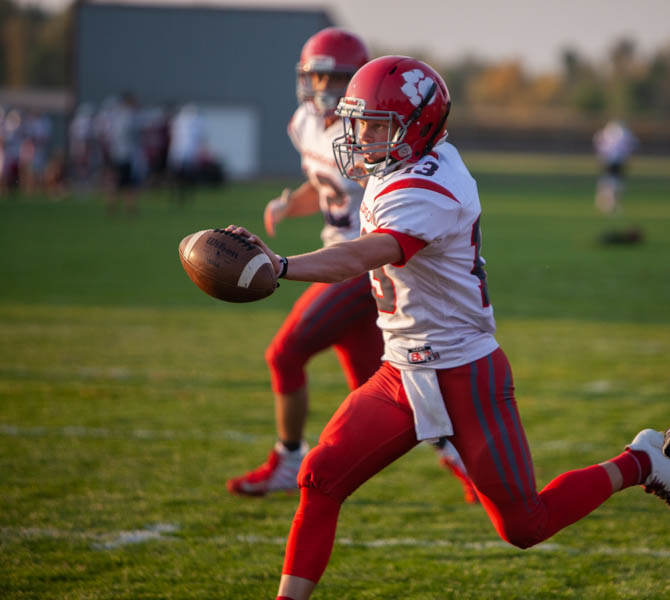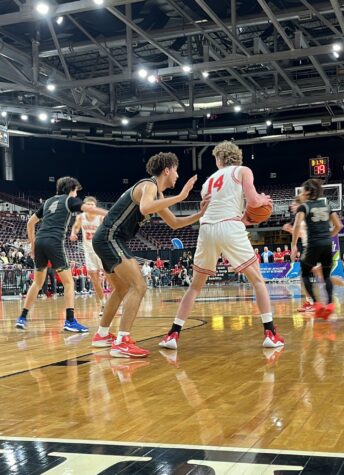How effective are our football helmets?

Jordan Porter, Madison's quarterback in action
Concussions are a common factor in football, and brain damage is a seriously bad thing. The question remains, how effective are the helmets in preventing concussion. How can they be improved to protect Football players? Concussions are caused by a bump, or jolt to the head or body that causes the brain to move rapidly in your skull. Concussions change how the brain would normally react. In all organized high school sports, more than 60 percent of concussions occur in football. Brain injury causes more deaths than any other sport injury, and brain injuries occur once every 5.5 Pro-Football games. 10 percent of all college football players, and 20 percent of all high school football players receive concussions. Once a person receives a concussion, they are much more likely to receive a second one.
While many people believe that Football helmets are made to prevent concussions, they do not in fact stop the brain from moving, therefore not preventing concussions. Helmets do prevent skull fractures and other brain injuries. Helmets actually lose effectiveness as they age because they lose their ability to absorb as much force. It is also vital for safety that the helmet is tightly fastened to your head. If the helmet fits incorrectly, it might cause even worse injuries. A loose fitting helmet can make the neck move on impact which can cause lots of bad injuries. There are helmets being produced that are made to fit better and absorb more impact that would normally go to the head, but none of them have proven they are more effective in preventing the incident of concussions. Helmets have safety ratings and the NFL only recommends helmets over a certain rating. Some people argue that helmets can create a false feeling of confidence, and that this leads to more aggressive behavior. It is common to see players leading with their heads and they definitely wouldn’t do that without a helmet. In the sport of rugby where helmets aren’t used, there is no leading with your head. Rugby players use shoulder tackles for the most part. They still receive concussions, but not nearly as many as the NFL. Kickoff returns are the plays where concussions most commonly occur.
Repeated brain injuries can lead to Chronic Traumatic Encephalopathy or CTE. This is a degenerative, debilitating brain disorder. The common symptoms are slurred speech, impaired memory, difficulty thinking and slow movement. Studies have shown that people with stronger necks are less likely to sustain brain injuries because they can limit their head movement more. While helmets may not be super effective in preventing concussions, they are still super important for other safety reasons and to avoid concussions. To truly solve the problem of concussions in football, better tackles need to be made.







